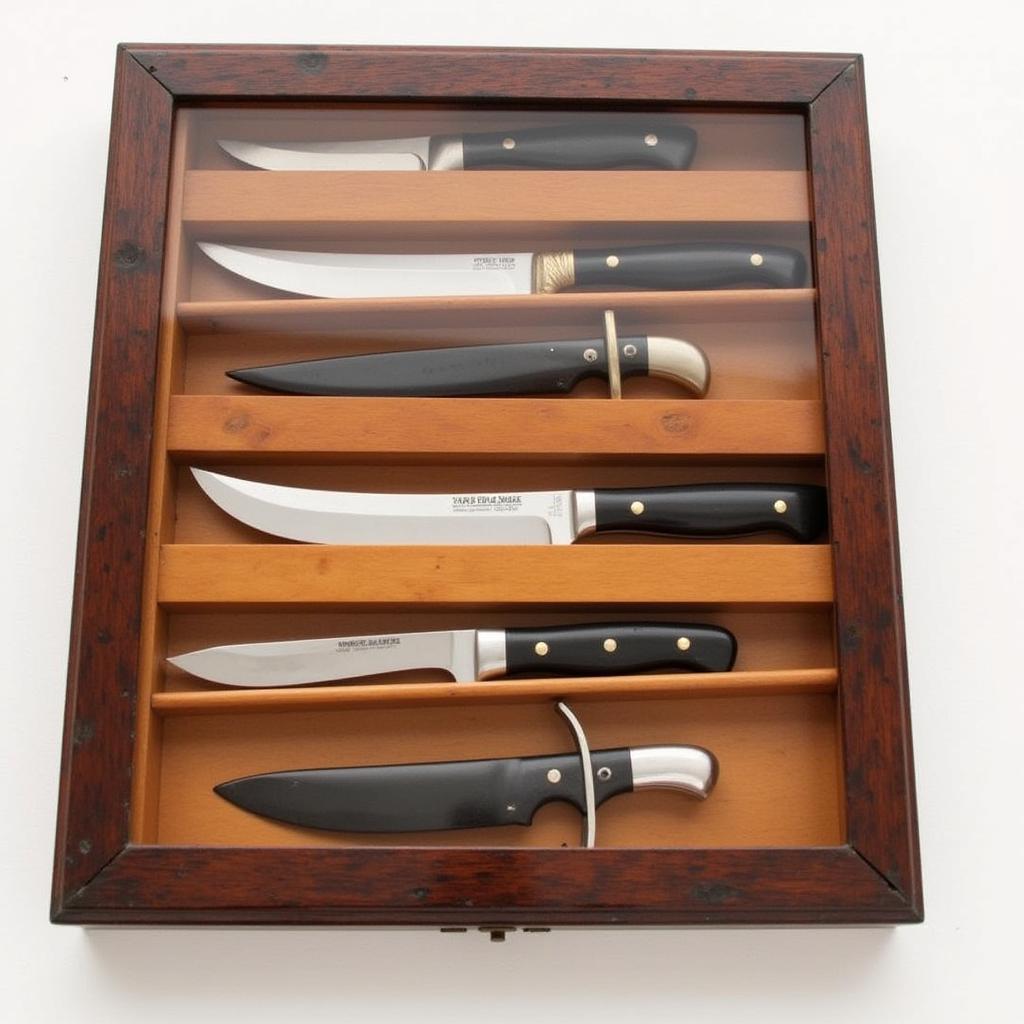Heirloom Knife: A Legacy in Steel
December 24, 2024Heirloom knives are more than just tools; they’re a tangible link to the past, a whisper of stories from generations gone by. These knives carry with them the weight of history, craftsmanship, and often, deep sentimental value. They are passed down through families, becoming cherished possessions that represent heritage and tradition.
Understanding the Value of an Heirloom Knife
Heirloom knives hold a unique allure, blending practicality with a profound connection to the past. They are often crafted with exceptional materials and meticulous attention to detail, showcasing the skills of artisans from bygone eras. Owning an Heirloom Knife is like holding a piece of history in your hand.
What Makes a Knife an Heirloom?
Not every old knife qualifies as an heirloom. A true heirloom knife possesses certain qualities that elevate it beyond a simple utensil. These qualities include:
- Exceptional Craftsmanship: Look for hand-forged blades, intricate detailing, and high-quality materials.
- Historical Significance: The knife may be associated with a specific historical period, event, or individual.
- Family History: The knife has been passed down through generations, accumulating stories and sentimental value.
- Rarity or Uniqueness: The knife may be a limited edition, a custom piece, or possess unique features.
Caring for Your Heirloom Knife
Preserving an heirloom knife is essential to ensure it continues to be enjoyed by future generations. Proper care involves:
- Cleaning: Use a soft cloth and mild detergent to clean the blade and handle. Avoid harsh chemicals or abrasive cleaners.
- Storage: Store the knife in a dry, cool place, away from direct sunlight and humidity. A protective sheath or display case can help prevent damage.
- Sharpening: Sharpen the blade only when necessary, using a honing steel or a professional sharpening service.
- Handling: Handle the knife with care, avoiding unnecessary stress on the blade or handle.
 Proper storage of heirloom knives in a protective case.
Proper storage of heirloom knives in a protective case.
The Stories Behind the Steel
Often, the most valuable aspect of an heirloom knife isn’t its monetary worth, but the stories it carries. These stories connect us to our ancestors, providing glimpses into their lives, their values, and their traditions.
“Heirloom knives are more than just objects; they’re vessels of memory,” says renowned historian and antique collector, Dr. Eleanor Vance. “They hold within them the echoes of lives lived, meals shared, and challenges overcome.”
Passing on the Legacy
Passing down an heirloom knife is a significant act, a way of sharing your family history and values with the next generation. It’s a tangible symbol of connection, a reminder that the past is always with us.
“Giving an heirloom knife to a loved one isn’t just about giving them a possession; it’s about entrusting them with a piece of your family’s story,” adds Dr. Vance. “It’s a way of ensuring that legacy continues to live on.”
Conclusion
An heirloom knife is a treasure to be cherished. It’s a testament to the enduring power of craftsmanship, a link to the past, and a symbol of family heritage. By understanding its value and caring for it properly, you can ensure that this legacy continues to be passed down for generations to come.
FAQ
- What is the best way to clean an heirloom knife?
- How should I store my heirloom knife to prevent rust?
- Can I sharpen an heirloom knife myself?
- What is the approximate value of an heirloom knife?
- How can I authenticate an heirloom knife?
- Where can I find more information about heirloom knives?
- What are some common types of heirloom knives?
Suggested Further Reading and Related Topics
- Knife Care and Maintenance
- History of Knife Making
- Types of Steel Used in Knife Blades
For any further assistance, please contact us at Phone: 0915117113, Email: [email protected] or visit our address: To 3 Kp Binh An, Phu Thuong, Vietnam, Binh Phuoc 830000, Vietnam. We have a 24/7 customer service team.